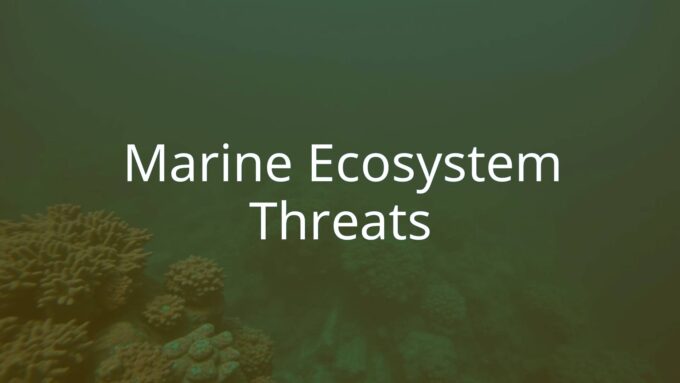Sustainability companies are businesses that make caring for the environment and supporting communities a key part of what they do. Instead of just following environmental rules as an afterthought, these companies treat sustainability as a main goal and part of their identity. They work to reduce harm to the planet and help it recover, while also focusing on social issues like fair treatment of workers and support for local groups.
These companies know the world is facing big problems such as climate change, resource shortages, and pollution. They don’t just follow the rules-they actively come up with new solutions, setting high goals for themselves. Their approach covers every part of their business, from where they get materials to how they make, package, ship, and eventually dispose of their products. For them, being environmentally friendly isn’t just a slogan-it’s a serious promise that drives them to improve and rethink how they do business.
What Are Sustainability Companies?
Sustainability companies build environmental and social goals into their main business plans. They aim to do more than just follow the law-they want to help solve environmental problems and support fairness in society, all while remaining successful over time. They see that healthy people and a healthy planet are needed for their business to last.
These companies don’t just do one or two green projects. They look at the entire process, from designing their products and choosing suppliers to managing factories and setting their company culture. Their full commitment often leads to new ideas that are good for both their business and the world, setting an example for others to follow.

How Do Sustainability Companies Operate?
Sustainability companies include the environment and people in every part of their work. They carefully pick recycled or renewable materials, use energy-saving methods, and often switch to solar or wind power to lower pollution. Reducing waste is also important-they try to reuse materials and keep items out of landfills for as long as possible.
They also check their suppliers to make sure everyone follows fair labor rules and helps the environment. Many use technology to track resources and emissions. Being open is important, so they often share detailed reports to show their progress. They always look for ways to make things better and increase their positive impact.
What Goals Do Sustainability Companies Pursue?
Their goals go beyond making money. These companies want to protect and even improve the environment by hitting targets like zero carbon emissions, saving water, cutting down on waste, and supporting wildlife. Some work to remove pollution or restore damaged land and forests.
Social goals matter too. They focus on fair pay, safe workplaces, and supporting communities. They try to prove that being environmentally friendly can also be good for business in the long run-making them stronger, appealing to ethical buyers, and attracting investors who care about these issues. Their goal is to be profitable while leaving things better for future generations.
Why Are Sustainability Companies Important for the Environment?
Sustainability companies are very important for protecting and fixing our environment. With major issues like climate change and loss of wildlife, businesses have a lot of power through what they use, how they make things, and what they sell. These companies use that power for good-finding new ways to prevent harm and show that making money and helping the environment can go together.
As these companies put sustainability at their core, they set new standards for other businesses to follow. This leads whole industries to become better for the planet, creating big changes that help fight climate problems and protect nature for everyone.

Benefits to Climate and Biodiversity
- Climate: These companies usually work to lower greenhouse gas emissions by using clean energy (like wind and solar), becoming more energy-efficient, and choosing materials that produce fewer emissions. Some, like Watershed, help other companies measure and reduce their carbon footprint.
- Biodiversity: They buy materials in ways that do not harm forests or animal habitats. Some support farming that builds healthier soil and attracts wildlife, like Allbirds promoting regenerative agriculture. Others finance projects to clean up oceans or save wild spaces.
How Sustainability Companies Shape Consumer Behavior
Sustainability companies do more than sell products-they help educate people to make better choices. They create truly environmentally friendly options and are clear about their benefits, like less pollution or no harsh chemicals. When a company is open about how it reduces harm (like using ethical materials or recyclable packaging), people trust them more and want to buy from brands that match their values.
Many also highlight these benefits in their advertising and on their websites, helping buyers make informed decisions. Studies show more people, especially younger generations, are willing to pay extra for green products and want businesses to help the environment.
Examples of Positive Environmental Impact
| Sector | Company | Impact |
|---|---|---|
| Energy | Invenergy | Creates large wind/solar farms, powers millions without fossil fuels |
| Technology | Aurora Solar | Makes installing solar panels cheaper and faster using software |
| Waste/Circular Economy | Back Market, AMP | Refurbishes electronics, uses AI to improve recycling |
| Agriculture | Oishii | Grows food indoors without pesticides, saves water |
| Industry | BAE Systems | Builds electric engines, installs solar panels in factories |
Types of Sustainability Companies
There are many kinds of sustainability companies, covering nearly every part of the economy. From how we power our homes to the food we eat and the clothes we wear, these companies are everywhere. This wide reach shows that being sustainable is becoming a normal way to do business, not just for a small group.
Below are the main kinds of sustainability companies, showing how each plays a role in supporting a better world.

Renewable Energy Firms
These companies replace oil and coal with clean energy like wind, solar, or water. Some focus on big projects powering cities, while others offer things like rooftop solar. For example, Invenergy makes massive wind/solar sites, and Heliogen uses AI to focus solar energy for factories. These companies help everyone move towards cleaner energy.
Green Technology and Software Providers
Green technology companies use tech skills to create tools that help people and companies use fewer resources. For instance, Watershed’s software lets businesses measure and lower carbon emissions. Aurora Solar helps design and manage solar power projects online. Companies like GridX give utilities tools to help switch to clean power options.
Sustainable Consumer Goods and Retail Brands
These companies change how products are made, using eco-friendly materials, ethical factories, and less packaging waste. Patagonia is famous for making clothing from well-sourced materials and encouraging repairs rather than replacements. Allbirds uses wool and plant fibers for shoes and aims to keep emissions low. Many brands are open about how they make their products so customers can check their claims.
Environmental Services and Consulting Organizations
These firms help other businesses or governments solve environmental problems. They manage waste, clean up pollution, or plan greener cities. For example, Veolia Environnement handles waste and water on a large scale. AECOM designs sustainable buildings and provides advice on big projects. UL Solutions audits businesses for safety and sustainability, giving advice on sourcing and waste.
Sustainable Agriculture and Food Companies
These companies focus on farming and food production with less harm to the planet. They use methods like saving water, cutting chemicals, and indoor farming. Oishii grows berries indoors with little water and no pesticides. Sunday sells eco-friendly lawn care kits. Technology companies like Halter make gear that helps farmers monitor animals sustainably. They aim to make food in ways that are better for land and wildlife.
What Makes a Real Sustainability Company?
It can be hard to tell real sustainability companies from those that simply try to look green. A truly committed company makes environmental and social goals part of everything, not just a single green product or a marketing message. They set the bar higher and lead by example, showing their results openly.
Key signs include certifications, clear reporting, and honesty. Checking these things helps customers and investors find companies that are actually making a difference.
Key Certifications and Standards
| Certification/Standard | What It Means |
|---|---|
| B Corporation | Checks the whole company’s social and environmental practices |
| 1% for the Planet | Company donates 1% of revenue to environmental causes |
| Climate Neutral | Confirms the company measures, reduces, and offsets carbon emissions |
| Science Based Targets (SBTi) | Company sets targets in line with climate science |
Transparency and Sustainability Reporting
Authentic sustainability companies willingly share data on their environmental and social work. This means putting out easy-to-read reports with data on emissions, water use, waste, and progress on goals. They stick to known standards like the Global Reporting Initiative (GRI) or Sustainability Accounting Standards Board (SASB). They also use tools like Watershed for accurate external reporting. The more details and openness, the more trustworthy the company.
Greenwashing: Warning Signs and How to Avoid It
- Vague claims like “eco-friendly” without proof or certifications
- Focusing on one small green detail but ignoring bigger problems
- No transparency-hard to find reports or data
- No third-party certifications
- History of breaking environmental laws
To avoid falling for greenwashing, look for real evidence, official certifications, and a long-term record-not just big talk.
How to Spot Top Sustainability Companies
Finding the best sustainability companies takes more than reading their ads. You need to check their goals, see if they really track results, and look at what neutral rankings or awards say. Leading companies will share their mistakes as well as successes, showing improvement year after year.
Checking Goals and Tracking Progress
Top companies set clear, measurable targets like cutting emissions by a set date, aligned with climate science. It’s useful to look at their record. Do they share both progress and challenges in their annual reports? Apple, for example, reports major achievements in cutting emissions and using renewable materials.
Independent Rankings and Awards
Outside groups like Newsweek, GIST Impact, or Plant-A Insights publish lists of the greenest companies. These lists check data on energy use, emissions, water, waste, and how open the company is. Some even require meeting strict European standards. High marks on several respected lists are a sign of real impact.
Measuring Environmental and Social Impact
| Area | Example Metrics |
|---|---|
| Environment | Scope 1/2/3 carbon emissions, total water use/disposal, energy type and usage, waste production |
| Social | Diversity numbers, fair pay, accident rates, local investments, supply chain labor conditions |
Companies like Watershed and GIST Impact help businesses measure and publicly share these numbers.
Top Sustainability Companies to Know
The field of sustainability is always changing, with new leaders appearing and old companies improving how they work. Here are a few standouts known for real environmental and social progress:
- Patagonia (California): Famous for eco-friendly clothing, repair programs, and giving profits to environmental causes.
- Veolia Environnement (France): Handles waste, water, and clean energy for cities and businesses worldwide.
- AECOM (Texas): Designs green buildings, advises on big projects, and looks after worker well-being.
- Allbirds (California): Makes shoes from natural materials, supports regenerative farming, and is open about the carbon footprint.
- Aurora Solar (Remote): Software that makes solar power setup easier and cheaper.
- Watershed (California): Offers a one-stop climate platform for businesses to track and lower their emissions.
- GridX (California): Gives utilities the info they need to move to cleaner energy and explain prices to customers.
- Molekule (California): Develops air purifiers that destroy pollutants at a chemical level, improving indoor air health.
- Ecolab (Minnesota): Helps companies save water, control pollution, and run greener operations.
How Sustainability Companies Bring Value to Business
Companies committed to sustainability are showing it can actually boost business. Making these principles part of their main strategy gives them several advantages, like lower costs, less risk, and a good reputation. As consumer and investor expectations change, these companies find new ways to grow while also making a positive difference.
Cutting Risks and Saving Money
Sustainability companies often cut costs by saving energy and water, preventing waste, and using recycled materials. They also avoid the risk of fines or lawsuits by staying ahead of changing laws. This focus on efficiency and careful planning helps them deal with unexpected problems and run a steady business.
Growing and Staying Strong in the Long Run
These companies are set up to last through changes in the market, laws, or environment. Building a business that uses fewer resources prepares them for shortages or new taxes. They also attract customers, staff, and investors who are looking for responsible organizations, giving them staying power in the market.
Trust and Customer Loyalty
Being honest about green goals builds trust. People want to buy from brands that match their values, and more people today are happy to pay more for products that are good for the environment. By proving their claims and showing their actions, these companies win repeat customers and even get people to recommend them to others.

Common Challenges for Sustainability Companies
Although sustainability companies have real strengths, they also run into several practical problems. These may include changing government rules, uncertain markets, and the need to balance higher up-front costs with their bigger mission.
Shifting Regulations and Markets
It’s hard to plan for the future if rules keep changing. New environmental laws or the removal of clean energy incentives can affect costs and business plans. Demand for green products might also shift due to economic changes or trends, making it hard to predict profits.
Scaling Up and Innovating
Growing from a small trial or new idea to a large, profitable business takes money, patience, and strong supply chains. Creating new green products or changing people’s habits can be slow and expensive. Getting these solutions to more people so they really help the planet is a steep challenge.
Making Money While Doing Good
It can cost more upfront to pick fair suppliers, use new tech, and get certified. Sometimes, this lowers profits in the short term. Successful sustainability companies find creative ways to cover these costs and explain to buyers and investors why their approach is worth it.
How You Can Support Sustainability Companies
Everyone has some power to help sustainability companies grow-whether by choosing what to buy, investing money, or speaking up. Your support helps these businesses expand their work and show others that there is demand for responsible products and services.
Buy Responsibly
- Choose products from companies with clear, honest information about their sourcing and production.
- Look for third-party labels like B Corp or Climate Neutral.
- Buy goods made to last, with less packaging, and local where possible.
Spending money on sustainable choices sends a signal that these matters are important.
Invest in Sustainable Funds and Companies
- Invest in companies or funds with strong environmental, social, and governance (ESG) records.
- Check fund reports and see if they prioritize transparency and real impact.
Putting money into these businesses helps them grow and encourages others to follow their example.
Advocate and Get Involved
- Give feedback to companies-praise good actions or suggest areas to improve.
- Use social media to share information about real sustainability leaders.
- As a shareholder, vote for proposals supporting green initiatives.
- Support nonprofits pushing for more corporate accountability.
What’s Next for Sustainability Companies?
This field keeps changing, with new technology, stricter global rules, and a wider idea of what it means to be a responsible business. As environmental and social issues get more attention, sustainability companies will use even more advanced technology and address a broader range of challenges.
New Technologies and Areas
- AI and machine learning to save resources and improve efficiency
- Carbon capture and storage to lower emissions directly
- Biotech to replace plastics and other polluting materials
- Circular economy-products designed to be reused or recycled easily
- Nature-positive approaches that restore wildlife and landscapes
Changing Global Rules
- Stricter laws on pollution, emissions, and sustainability reporting
- More governments requiring green investments and clean energy
- New international targets for climate, biodiversity, and food systems
These changes will push companies to do better and be clearer about their real results.
Broader View of Corporate Responsibility
The old way-just cutting emissions-is being replaced by an prexpectation that companies support fair pay, good communities, and healthy nature. Businesses will be expected to measure and share their social and environmental impact using new tools. Truly sustainable companies will help others improve as well and build a better future for everyone, not just their own bottom line.












Leave a comment